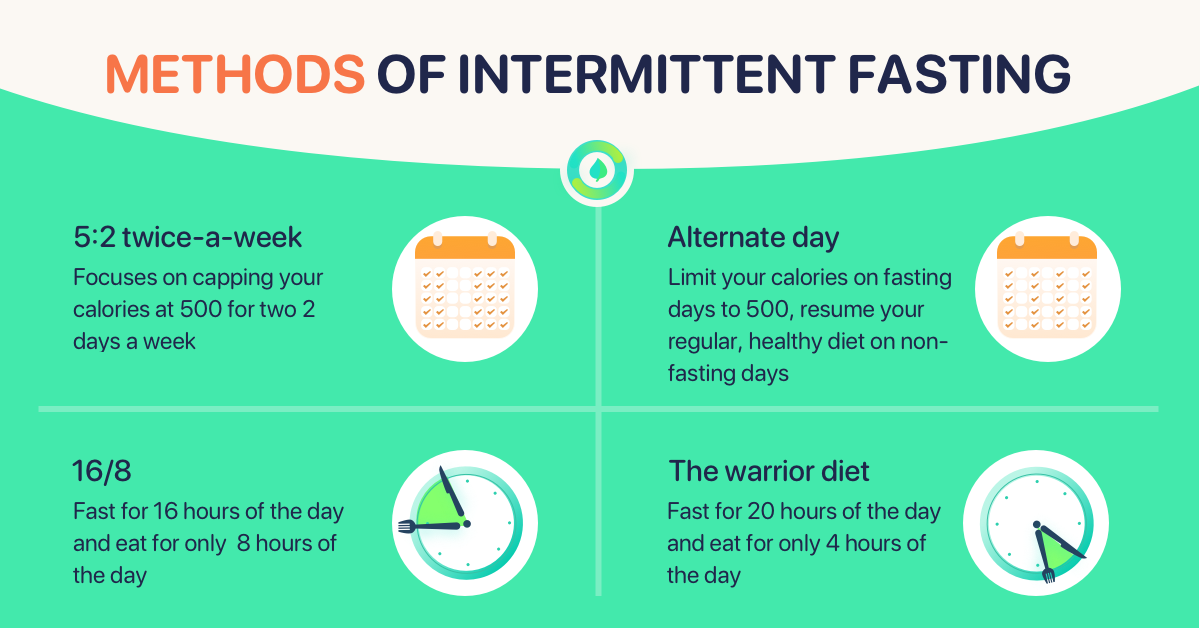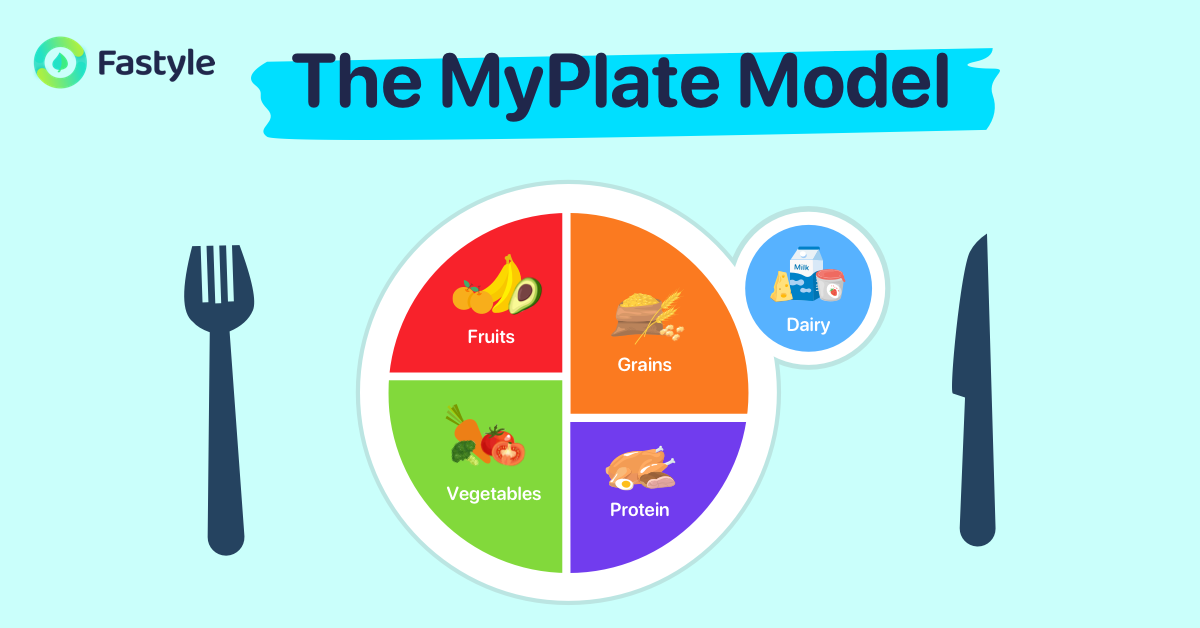Well, some of you who have been in intermittent fasting for a period of time may feel depressed, because no evident changes have occurred to your body, up to now. Then, what are the real reasons for that? Does that mean intermittent fasting isn’t fit for you when it comes to weight loss? Or are there any other reasons? Okay, do not worry, maybe you can find the answer after reading this article.
.png)
Top Reasons Why You Haven’t Seen Weight Loss with Intermittent Fasting
Are you using the right eating and fasting windows?
People who are new to intermittent fasting are suggested to pick up their eating and fasting windows according to their specific conditions. There are usually four types of fasting diet plans, and each of them suits different groups respectively.

● 5:2 approach
You are required to eat with your normal diet five days a week and fast for two days. But your caloric intake should be restricted to 500 to 600 calories for the remaining two.
● 16:8 approach
You are required to have an eating window to be long for 8 hours during the day and to take the 16-hour fasting period overnight.
● Warrior Diet
You are required to have a small amount of produce during the day but to get a sumptuous meal at night.
● Eat-Stop-Eat plan
You are required to involve one or two 24-hour fasts each week.
Conditions vary from person to person, that is to say, when choosing a fasting diet plan, you should take your condition into consideration, basically including your health condition, work schedule, or something else you have to do every day. For example, if you are busy all week, but you choose the 5:2 approach unluckily, then just 500 to 600 calories intake on that day will leave you no spare energy to keep working. In this condition, the wrong eating window cannot help you but harm your health in return.
Are you eating the right food during your eating window?
At first, you need to know that what you eat has a close tie with your eating window, that is to say, though you have chosen a suitable eating window, the wrong food you’ve taken can still make your body have nothing changed.
The food you eat should contain this nutrition:
- Healthy fats
- Lean proteins
- Complex carbohydrates
- Fiber
MyPlate model is strongly suggested since it’s an easy-to-use tool providing a clear guide on your diet-friendly with intermittent fasting and your health.

Do you drink enough water during your windows?
Water can not only make you full, reduce food intake, but also burn fat by promoting a rise in body temperature. So, it is better for you to keep a large reusable water bottle at hand so that you can sip throughout the day. However, if you have been tired of drinking water every day, tea or black coffee can also help you replenish your lost fluids, but you need to take control of the drinking quantity.
Do you overtrain during your fasting window?
What you should know is that overtraining may affect your weight loss and even compromise your health. Your workout schedule should depend on the eating window you are following. For example, if you choose the 16:8 approach, at the same time, you do not eat breakfast, the overtraining will make you feel extremely low on energy and it will also cause the rapid increase or decrease of blood pressure or blood sugar content of the body, which has a great adverse effect on health.
Have you fasted for long enough?
How long you have devoted your time to intermittent fasting can also determine your weight effect. In general, you do not see results without a short period of fasting. If you want to know when you will see the effect, you should make it clear how intermittent fasting works in your body.
Generally speaking, as you stop eating, your body will go through 6 phases.
●Phase 1. Blood Sugar Rises (Fasting for 0-4 Hours).
Depending on what you eat, your blood sugar begins to rise about 10 to 15 minutes after you eat and then remains at a higher level for about 4 hours.
●Phase 2. Blood Sugar Drops (Fasting for 4-8 Hours).
Hours after the meal, your blood sugar begins to decrease because the glucose from the food you ate was either used for energy already or stored for later use.
●Phase 3. Blood Sugar Settles Down (Fasting for 8-12 Hours).
When your blood sugar decreases, your body releases stored carbohydrates for energy and to help stabilize blood sugar.
●Phase 4. Fat Burning (12 Hours).
When your body stops burning food or stored carbohydrates, it needs to find another source of energy. During this phase, your body will burn fat to provide energy.
●Phase 5. Ketone Levels Rise (13 Hours).
When your body fat is burning, the fatty acids will be converted into ketone bodies. As long as you continue through the phase, your ketone level will continue to rise.
●Phase 6. Autophagy (24 Hours).
Autophagy, also known as cell clean-up, is the process of getting rid of cells that are damaged or dysfunctional.
So, as you can see, the working principle of intermittent fasting is to prolong the time between your meals so that enough time is provided to burn your stored fat. According to these phases, you should keep this cycle at least being long for two weeks so that you can see the changes that intermittent fasting brings to your body.
How Long Exactly does Intermittent Fasting Take to Work?
We all know that no matter which kind of diet is conformed to, it usually takes a period of time to work in human bodies, so how long will intermittent fasting take action in the body? Experts suggest that the one who follows the basic rules might begin to first notice a difference in his body about 10 days after beginning intermittent fasting. It could take between 2-10 weeks for him/her to lose significant weight. 10 weeks is the ideal time to shed a minimum of 3 kilos when following intermittent fasting dedicatedly. But the result may differ from person to person depending on their metabolism.
How to Rapidly See Results with Intermittent Fasting?
As usual, it is a long journey for you to see the effect of intermittent fasting on your body, but there are still some good tips helping you lose weight better.
Get the right amount of exercise
During the period of intermittent fasting, taking some exercise is a good way for your body to burn much fat. Here are some kinds of exercises for you.
Walking
Walking not only is easy to do, but is a powerful way to combat physical stress as well, especially when you want to eat something.
Aerobic exercise
Doing some aerobic exercises in the morning on an empty stomach is one of the best ways to lose weight.
Strength training
Doing full-body strength training can give the body a strong incentive to work hard to maintain muscle mass.
Prepare meal ahead of time
Preparing a meal in advance can help you eat a meal in accordance with the food list, thus controlling your daily calorie intake, otherwise, it may bring some negative effects. For example, if you do not prepare a meal ahead of time according to your food list, when finishing tasks, you usually are in hunger, so in order to fill your stomach, some convenient but unhealthy food will be eaten by you, thus your dieting schedule will be broken.
Have a sound sleep
You may already know that intermittent fasting may improve the quality of your sleep by reinforcing your circadian rhythms, but do you know a sound sleep can offer you a better weight-reducing effect in return? The reason why a sound sleep can be carried out to lose weight is that once people lack sleep, will lead to an endocrine disorder, which leads to the secretion of fatty substances that cannot normally decompose fat, or the secretion of fat substances is too little to decompose too much fat, and the two cases will lead to obesity. Good sleep can handle this problem perfectly.
Drink Much Water
Just as I have mentioned, drinking water is recommended when you are in intermittent fasting. What you need to know is drinking much water benefits you lose weight even better. When your body is in a fasted state, it starts to break down damaged components and detoxifies the body. It is very important that you flush out those toxins by drinking lots of water. Ideally, you can drink more water than you usually would.
Bottom Line
- The working principle of intermittent fasting is to prolong the time between your meals so that enough time is provided to burn your stored fat.
- Generally speaking, it usually takes a body average 10 weeks to see weight loss effect so that you don’t need to feel down if you haven’t seen any effect with intermittent fasting implemented.
- There are still some simple tips maximizing intermittent fasting results and they are dramatically worth trying.
